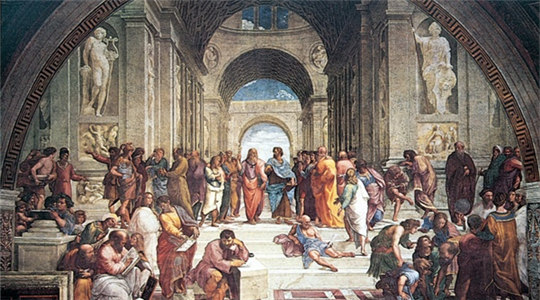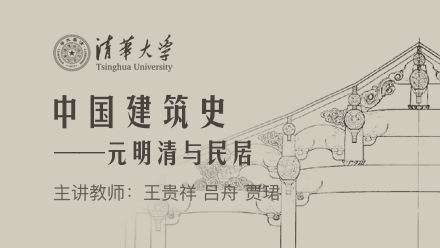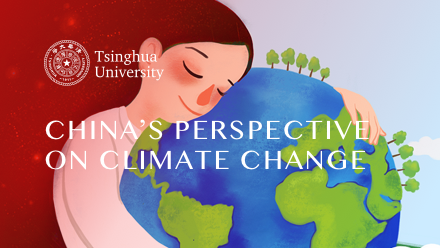
当前课程知识点:Plato, Socrates, and the Birth of Western Philosophy > Introduction(1)——Philosophy, Religion and Culture > 7.The Significance of Theory of Cultural Transformation and Interaction > The Significance of Theory of Cultural Transformation and Interaction
返回《Plato, Socrates, and the Birth of Western Philosophy》慕课在线视频课程列表
返回《Plato, Socrates, and the Birth of Western Philosophy》慕课在线视频列表
文化互动论的转型
我认为是具有重要的理论意义
和现实意义的
用文化互动转型论的视野
观察中西文化交流史
观察东方文化
或者中国文化与西方文化的相互作用
确实是一个动态的发展
对这种历史的解释
我们也必须具有双向互动的意识
在古代 由于地理环境的阻隔
中国和西方很少发生直接的交往
仅仅是通过一系列中介环节
间接地实现相互影响
但是即使在古代那样的条件下
东西文化之间影响的双向性
仍旧不可否认
近代以来 地理大发现以后
随着全球航路的开通
西方文化挟自身之优势
对东方文化采取了一种强态势的输出
而这一时期的文化传播
以西方文化对东方文化产生影响为主流
中国社会自从改革开放以来
中国人在短短的几十年的时间里
经历了从引进西方先进的产品和技术
到借鉴西方的各种法律
政治 经济制度
再到参照西方的价值体系和思想观念
对中国文化进行全面的分析
显示出了一种前所未有的
自觉性和主动性
但是如果我们把
这几十年的文化交流
看作西方文化对中国文化的单向输出
仍就是不符合事实的
因为改革开放以来这几十年
也是中国文化对西方文化
产生最大影响的几十年
就是在这个时期
东方文化 尤其是中国文化
对西方文化的影响
仍旧是不可否认的现实
因为 改革开放以来这几十年
西方人 比以往任何历史时期
都更加深刻地理解了
中国社会与中国文化
对中国文化精神及其价值的肯定
也超过以往
历史和现实都在告诉我们
尽管在一定的历史时期内
强势文化对弱势文化
会产生一种一边倒的影响趋势
但是 每一种具有牢固的
精神根基和历史传统的文化体系
都不会 或者不可能
从根本上被其他文化所取代
西方文化虽然在近几百年内
形成了一股裹挟全球的势头
但是这股势头如同公元1500年以前
持续了一千多年之久的
东风压倒西风
的那个历史潮流一样
并不能成为人类文化的最终格局
与20世纪初
全世界都被纳入到
西方殖民体系之中的情况相比
20世纪末西方文化的影响
已经呈现出一种衰退的趋势
世界各国在越来越大的程度上被卷入到
由西方开创的经济一体化的浪潮之中
但是 不同文化所固有的传统价值体系
和宗教信仰却并没有因此而被取消
反而随着全球殖民体系的瓦解
和政治意识形态冲突的结束
而呈现出一种复兴的前景
就此而言 持续了两百年之久的
全球西方化的潮流
没有从根本上结束世界文化的
多元化格局
反而会使这种多元化的格局
在一种新的基础上
也就是在文化交融和自我更新的
基础上得到重新的再现
面对这种世界文化发展的大趋势
我认为 提出文化互动转型论
有助于中国文化的转型与更新
也有助于确立中国文化
在未来世界文化中的重要地位
我请同学们认真理解
提出你自己的看法
-1.Etymology
-2.Definition and the History of Philosophy
--Definition and the History of Philosophy
-3.Religion
--Religion
-4.Culture
--Culture
-5.Theory of Cultural Transformation and Interaction: Five theoretical premise
--Theory of Cultural Transformation and Interaction: Five theoretical premise
-6.Theory of Cultural Transformation and Interaction:Five Basic Position
--Theory of Cultural Transformation and Interaction:Five Basic Position
-7.The Significance of Theory of Cultural Transformation and Interaction
--The Significance of Theory of Cultural Transformation and Interaction
-Self-test Exercises
-Thinking Questions
-1.The Birth Environment of the Greek Philosophy(1)
--The Birth Environment of the Greek Philosophy(1)
-2.The Birth Environment of Greek Philosophy(2)
--The Birth Environment of Greek Philosophy(2)
-3.The Stages and Schools of Greek Philosophy(1)
--The Stages and Schools of Greek Philosophy(1)
-4.The Stages and Schools of Greek Philosophy(2)
--The Stages and Schools of Greek Philosophy(2)
-5.The Local Characteristics of Ancient Greek Philosophy and the progress of internationalization(1)
--The Local Characteristics of Ancient Greek Philosophy and the progress of internationalization(1)
-6.The Local Characteristics of Ancient Greek Philosophy and the progress of internationalization(1)
--The Local Characteristics of Ancient Greek Philosophy and the progress of internationalization(1)
-7.The termination of Ancient Greek Philosophy
--The termination of Ancient Greek Philosophy
-Self-test Excercises
-Thinking Questions
-1.A transition to rational thinking(1)
--A transition to rational thinking(1)
-2.A transition to rational thinking(2)
--A transition to rational thinking(2)
-3.A transition to rational thinking(3)
--A transition to rational thinking(3)
-4.A transition to rational thinking(4)
--A transition to rational thinking(4)
-5.Heraclitus’ thinking
-6.Parmenides’ thinking(1)
-7.Parmenides’ thinking(2)
-Self-test Excercises
-Thinking Questions
-1.Seeking the origin:the early philosophers(1)
--Seeking the origin:the early philosophers(1)
-2.Seeking the origin:the early philosophers(2)
--Seeking the origin:the early philosophers(2)
-3.Seeking the essence: Plato’s theory of Form (1)
--Seeking the essence: Plato’s theory of Form (1)
-4.Seeking the essence: Plato’s theory of Form (2)
--Seeking the essence: Plato’s theory of Form (2)
-5.Seeking to on: Aristotle’s ontology and metaphysics (1)
--Seeking to on: Aristotle’s ontology and metaphysics (1)
-6.Seeking to on: Aristotle’s ontology and metaphysics (2)
--Seeking to on: Aristotle’s ontology and metaphysics (2)
-Self-test Excercises
-Thinking Questions
-1.The lexical meaning
-2.Epistemology(1)
-3.Epistemology(2)
-4.Epistemology(3)
-5.Epistemology(4)
-6.The features
-Self-test Excercises
-Thinking Questions
-1.A lexical meaning(1)
-2.A lexical meaning(2)
-3.A lexical meaning(3)
-4.Plato’s Dialectics(authentic true)
--Plato’s Dialectics(authentic true)
-5.Aristotle’s Logics(judging true)(1)
--Aristotle’s Logics(judging true)(1)
-6.Aristotle’s Logics(judging true)(2)
--Aristotle’s Logics(judging true)(2)
-Self-test Excercises
-Thinking Questions
-1.A lexical meaning
-2.The occurrence and development of the ancient Greek Science(1)
--The occurrence and development of the ancient Greek Science(1)
-3.The occurrence and development of the ancient Greek Science(2)
--The occurrence and development of the ancient Greek Science(2)
-4.The occurrence and development of the ancient Greek Science(3)
--The occurrence and development of the ancient Greek Science(3)
-5.The occurrence and development of the ancient Greek Science(4)
--The occurrence and development of the ancient Greek Science(4)
-6.The occurrence and development of the ancient Greek Science(5)
--The occurrence and development of the ancient Greek Science(5)
-7.the technicalization and application of ancient Greek Science(1)
--the technicalization and application of ancient Greek Science(1)
-8.the technicalization and application of ancient Greek Science(2)
--the technicalization and application of ancient Greek Science(2)
-Self-test Excercises
-Thinking Questions
-1.A Lexical meaning
-2.Plato’s theory of Love
-3.The high praise to the love god: a reading on Symposium (1)
--The high praise to the love god: a reading on Symposium (1)
-4.The high praise to the love god: a reading on Symposium (2)
--The high praise to the love god: a reading on Symposium (2)
-5.The high praise to the love god: a reading on Symposium (3)
--The high praise to the love god: a reading on Symposium (3)
-6.The high praise to the love god: a reading on Symposium (4)
--The high praise to the love god: a reading on Symposium (4)
-Self-test Excercises
-Thinking Questions
-1.A lexical analysis
-2.The development of the Classic Greek Ethics(1)
--The development of the Classic Greek Ethics(1)
-3.The development of the Classic Greek Ethics(2)
--The development of the Classic Greek Ethics(2)
-4.The development of the Classic Greek Ethics(3)
--The development of the Classic Greek Ethics(3)
-5.The development of the Classic Greek Ethics(4)
--The development of the Classic Greek Ethics(4)
-6.From the ultimate goodness to the common goodness(1)
--VideoFrom the ultimate goodness to the common goodness(1)
-7.From the ultimate goodness to the common goodness(2)
--From the ultimate goodness to the common goodness(2)
-Self-test Excercises
-Thinking Questions
-1.A lexical meaning
-2.Ancient humanistic trend of thoughts(1)
--Ancient humanistic trend of thoughts(1)
-3.Ancient humanistic trend of thoughts(2)
--Ancient humanistic trend of thoughts(2)
-4.Ancient humanistic trend of thoughts(3)
--Ancient humanistic trend of thoughts(3)
-5.A theoretical summary
-Self-test Excercises
-Thinking Questions
-1.A lexical analysis
-2.The story of Gyges
-3.The Ancient theory of justice(1)
--The Ancient theory of justice(1)
-4.The Ancient theory of justice(2)
--The Ancient theory of justice(2)
-4.The Ancient theory of justice(3)
--The Ancient theory of justice(3)
-Self-test Excercises
-Thinking Questions
-1.An explanation to the related words
--An explanation to the related words
-2.A Platonic Republic
-3.Cicero’s people’s Republic(1)
--Cicero’s people’s Republic(1)
-4.Cicero’s people’s Republic(2)
--Cicero’s people’s Republic(2)
-Self-test Excercises
-Thinking Questions
-1.A lexical analysis
-2.The religious trends in the late period of ancient Greek philosophy(1)
--The religious trends in the late period of ancient Greek philosophy(1)
-3.The religious trends in the late period of ancient Greek philosophy(2)
--The religious trends in the late period of ancient Greek philosophy(2)
-4.The religious trends in the late period of ancient Greek philosophy(3)
--The religious trends in the late period of ancient Greek philosophy(3)
-5.The religious trends in the late period of ancient Greek philosophy(4)
--The religious trends in the late period of ancient Greek philosophy(4)
-6.The collision between faith and reason(1)
--The collision between faith and reason(1)
-7.The collision between faith and reason(2)
--The collision between faith and reason(2)
-Self-test Excercises
-Thinking Questions
-1.An explanation to the related words
--An explanation to the related words
-2.Communion with gods(1)
-3.Communion with gods(2)
-4.Communion with gods(3)
-5.Communion with gods(4)
-6.Plotinus’ mystical system of thoughts
--Plotinus’ mystical system of thoughts
-Self-test Excercises
-Thinking Questions
-1.The local characteristics of the ancient Greek Philosophy
--The local characteristics of the ancient Greek Philosophy
-2.The progressive universalization of the ancient Greek Philosophy
--The progressive universalization of the ancient Greek Philosophy
-3.The basic spirits of the ancient Greek Philosophy(1)
--The basic spirits of the ancient Greek Philosophy(1)
-4.The basic spirits of the ancient Greek Philosophy(2)
--The basic spirits of the ancient Greek Philosophy(2)
-Self-test Excercises
-Thinking Questions




